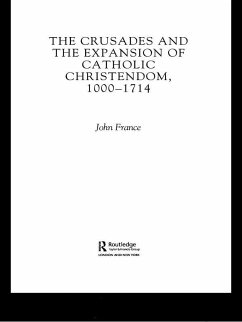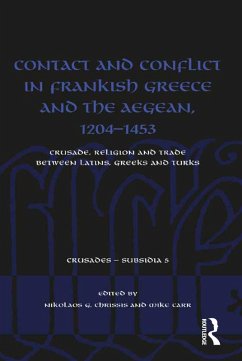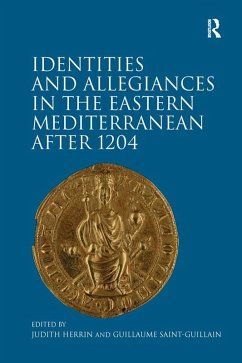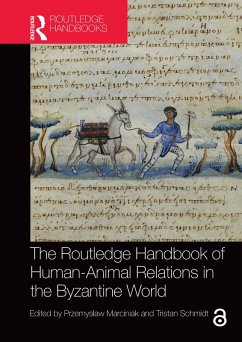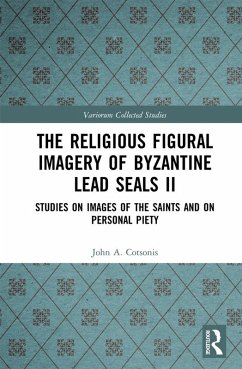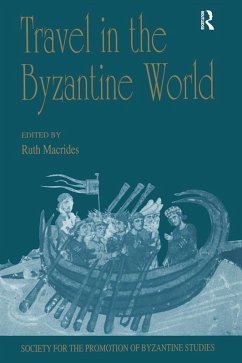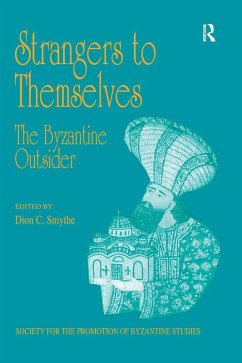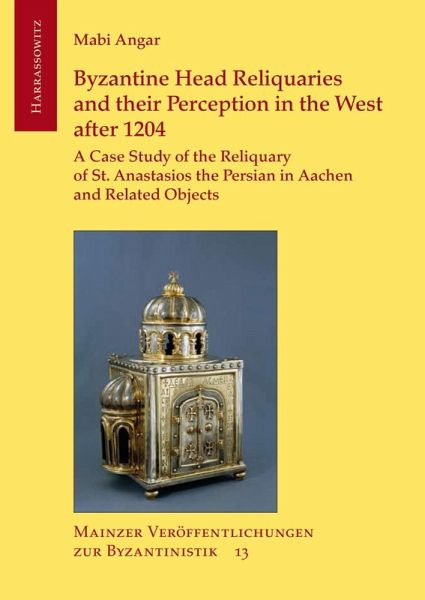
Byzantine Head Reliquaries and their Perception in the West after 1204 (eBook, PDF)
A Case Study of the Reliquary of St. Anastasios the Persian in Aachen and Related Objects

PAYBACK Punkte
0 °P sammeln!
This study centers around Byzantine head relics and their receptacles. The first part discusses the so-called Reliquary of St. Anastasios the Persian, a silverwork in the shape of a centralized, domed church that was probably made in Antioch, but was later housed in Aachen Cathedral. The object is commonly considered a Byzantine vessel for the Eucharist that was later reworked to become a reliquary for the head of St. Anastasios in its new Western context. This study closely examines the life and cult of this particular saint in Byzantium and Aachen by considering the object's typology and con...
This study centers around Byzantine head relics and their receptacles. The first part discusses the so-called Reliquary of St. Anastasios the Persian, a silverwork in the shape of a centralized, domed church that was probably made in Antioch, but was later housed in Aachen Cathedral. The object is commonly considered a Byzantine vessel for the Eucharist that was later reworked to become a reliquary for the head of St. Anastasios in its new Western context. This study closely examines the life and cult of this particular saint in Byzantium and Aachen by considering the object's typology and contextualizing relations between Antioch and Constantinople in the late 10th century that have been largely overlooked, shedding light on the handling of sacred objects and confiscation measures under Basil II. The second part of the study concerns the veneration of Byzantine head relics in Constantinople and, more specifically, head relics that were transferred to the West in the aftermath of the Fourth Crusade. A discussion of Latin, post-1204 sources which affected medieval and modern perceptions of Byzantine relic veneration counters a bias against Byzantine sacred goldsmith work discernable in scholarship of the mid-20th century. Together with appendices on the anatomical nomenclature of the human skull, skull-chalices, and selected sacred objects made of precious metal related to relic veneration and the Eucharist, this study aims to reconstruct head reliquary types. It also seeks to refute the claim in art history that simple caskets that can easily be opened were commonly used as reliquaries of Byzantine body relics.
Dieser Download kann aus rechtlichen Gründen nur mit Rechnungsadresse in A, B, BG, CY, CZ, D, DK, EW, E, FIN, F, GR, HR, H, IRL, I, LT, L, LR, M, NL, PL, P, R, S, SLO, SK ausgeliefert werden.





